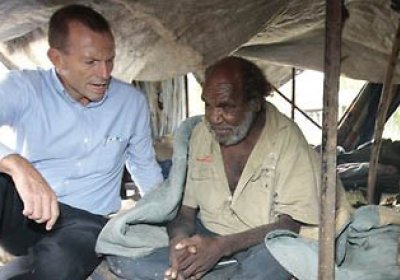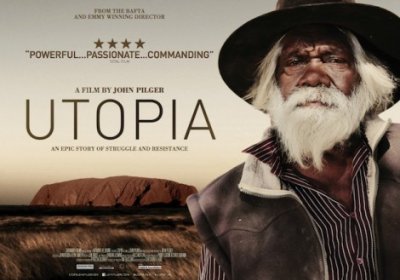About 150 people rallied outside the home of Sheila Oakley in the Brisbane suburb of Logan on February 15.
Oakley was tasered in the eye by police outside her home on February 6. She has been hospitalised and will suffer permanent disability.
The rally marched from her home to Logan police station to hand over a petition calling for an urgent investigation into the incident, to be carried out by an independent body including Aboriginal and Torres Strait Islander representatives.
Indigenous
"February 14 is celebrated as a day of of love by many people, but for us it is a day of grief" said one of the Aboriginal speakers at the start of the rally and march to mark the 10th anniversary of the killing of Aboriginal youth TJ Hickey in a police pursuit in Redfern. The protest began at the spot in where TJ was impaled on a fence after being thrown off his bicycle. The Hickey family, including mother Gail, where out in force. "Its been 10 long years but I am not giving up the fight," she said.
Photos below by Peter Boyle
At a major speech in parliament on February 12, Prime Minister Tony Abbott said the government was “serious about Aboriginal policy … no less serious than it is about stopping the boats”.
He pledged to close the gap between Indigenous and non-indigenous outcomes in health, education and employment.
The Northern Territory government released the draft report of the independent Review of Indigenous Education in the Northern Territory on February 7. The government’s website says the review aimed to “get an informed understanding of the impact of current programs and initiatives”.
If the report’s recommendations are indicative of government intent, education for remote Aboriginal children in the NT looks set to suffer more blows.
When the Black Power movement emerged in Sydney, Melbourne and Brisbane in the late 60s, thousands of Aboriginal people took to the streets demanding national uniform land rights legislation and recognition of our right to self-determination.
The establishment of the Aboriginal Tent Embassy in 1972 further galvanised this groundswell of Black activism. Thousands of Aboriginal people converged on Brisbane to protest the ’82 Commonwealth Games, and then came the call for a Treaty.
Since their founding in 1896, every Olympics has arrived with the promise to unite the world.
One can still hear the lyrical words of the man who presided over the 1936 Berlin games, Chancellor Adolf Hitler, who said that he hoped his Nazi Olympics could help “knit the bonds of peace between nations”.
Hitler’s dreams of using the vessel of what is known as “the Olympic Movement” to create a harmonious world has tragically never come to pass, despite the best efforts of the aristocrats in the International Olympic Committee.
Sydney’s Botany Bay was named by Captain James Cook while he was investigating this “great Southern continent” for the British empire in 1770. His exploration led to the First Fleet’s settlement in the area on January 26, 1788, and the beginning of 226 years of massacres, dispossession and abuse of the land’s first people.
So the graffiti discovered along the western shoreline of the bay reading “Fuck Australia Day, no pride in genocide” and on the front of Captain Cook’s heritage cottage in Melbourne labelling January 26 “Australia’s shame” had a symbolic point to their messages.
As Green Left Weekly approaches its 1000th issue, more than 20 years after it first hit the streets, we will be looking back at some of the campaigns it has covered and its role as an alternative source of news.
***
The first editorial of Green Left Weekly, urging the Bob Hawke government to not lift sanctions against South Africa until apartheid was completely dismantled, set the anti-racist tone of the paper.
January 26 is officially celebrated as Australia Day, but for Aboriginal and Torres Strait Islander people (and anyone who values the truth) it is known as Invasion Day or Survival Day. This is the day when British colonial authorities arrogantly laid claim to this continent, opening an era of brutal dispossession, genocide and racism.
On February 14, 2004, as a consequence of a police pursuit, a Redfern police car driven by Constable Michael Hollingsworth rammed TJ Hickey’s bicycle. As a result, he was impaled on a spiked metal fence. The police did not follow proper medical practice and he died in hospital the next day.
This year will be the 10-year anniversary of his death. The Hickey family, with the support of the Indigenous Social Justice Association, will be rallying at the fence line on the corner of George and Phillip streets in Waterloo to mark the occasion.
SOMETIMES in life, you can feel pretty helpless. That said, I’m a privileged white guy in a privileged white society. So for me at least, it doesn’t happen very often.
It happened last year.
John Pilger is a journalist I grew up reading, and a large part of the reason why I entered journalism. Pilger was back in Australia making Utopia, his fourth film about the plight of Aboriginal Australians. He asked me to work on it with him.
Utopia
Directed by John Pilger
http://utopiajohnpilger.co.uk
The latest documentary by Emmy and BAFTA award winning film maker and journalist, John Pilger, contrasts two very different worlds: one of white aspiration on Sydney’s northern beaches, and the other the Aboriginal community in the ironically named town of Utopia, located in central Australia.
The town has been assessed as the most disadvantaged and poorest community in Australia. The distinction could not be more stark.
- Previous page
- Page 83
- Next page











